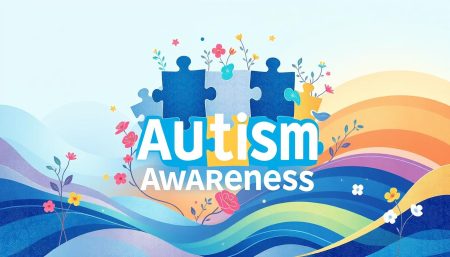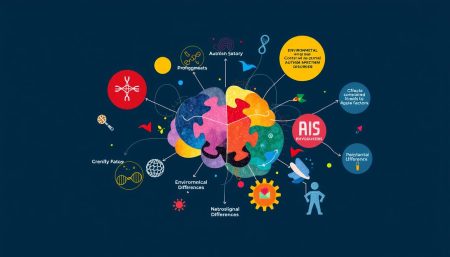What's Hot
- Alcohol Use Disorder DSM 5: Diagnosis Criteria
- Veterans: Alcohol Use & Sleep Apnea Connection
- Hair Transplant Pain: What to Expect
- Cost of Hair Transplant: What You Need to Know
- Is Hair Transplant Worth It? Explore Your Options
- Does Insurance Cover Hair Transplant? Find Out Now
- Affordable Dental Implants: Your Complete Cost Guide
- Dental Insurance That Covers Implants – Compare Plans
Autism Spectrum Disorder
The world of neurodevelopmental conditions can be complex. Many people wonder about the relationship between Asperger’s syndrome and autism spectrum disorder. These terms have evolved over time, leaving some confusion in their wake.In recent years, the medical community has updated…
What Is The Disease Autism: A Complete Overview
Autism spectrum disorder is a complex developmental disability. It affects how people interact, communicate, and behave. This condition starts in early childhood and lasts a lifetime.Those with autism often struggle in social situations. They may also show repetitive behaviors. The…
Does Sketch Have Autism: Signs and Understanding
The entertainment world is buzzing with questions about autism spectrum disorder in celebrities. From stand-up comedians to sketch artists, the spotlight on neurodiversity is growing brighter. Fans and critics alike are curious about the signs of autism in popular streamers…
The debate over whether vaccines cause autism has grown. Parents need to know the truth about vaccines and autism. This article will look into the vaccine safety issue and its link to autism spectrum disorder.We’ll check out the science, tackle…
Neurodevelopmental disorders like ADHD and autism spectrum disorder (ASD) often spark curiosity about their connection. These conditions can profoundly impact a person’s life, affecting behavior, learning, and social interactions.While ADHD and autism spectrum disorder share some similarities, they are distinct…
Autism spectrum disorder (ASD) impacts millions of families globally, sparking curiosity about its roots. Many ponder if autism is passed down through genes and how it develops. This piece dives into the complex realm of autism genetics, looking at the…
Every April, Autism Awareness Month highlights autism spectrum disorder. It’s a time for learning, support, and celebration. It aims to spread knowledge and promote acceptance in the U.S.In April, you’ll see blue lights and puzzle pieces everywhere. This guide will…
Dog owners often wonder if their furry friends can experience conditions similar to humans. One question that comes up is, “Can dogs get autism?” This topic sparks curiosity about canine behavior and possible parallels with human autism spectrum disorders.While autism…
Autism spectrum disorder (ASD) is a complex condition that affects people differently. This guide explores the world of autism, covering its signs, causes, and life impact.We’ll dive into the main features of autism. You’ll learn about early signs in children…
Autism spectrum disorder raises many questions. One big one is if it’s a mental disorder. This question dives into the complex world of autism and its role in mental health.Autism is a neurodevelopmental condition. It affects how people interact, communicate,…
As a parent, you want the best for your child. Knowing the signs of autism can help you spot concerns early. This guide will help you understand autism symptoms and early signs.Autism spectrum disorder changes how children interact, communicate, and…
Scientists are working hard to understand autism spectrum disorder. They are looking at many different things to find out why it happens. Knowing what causes autism is important for families and doctors.There are many things that can lead to autism,…
Understanding Autism Spectrum Disorder – Key Insights
Every morning, many people and families face the challenges of Autism Spectrum Disorder (ASD). Learning about it is not just sharing facts. It’s a crucial step towards helping those affected and making our communities better.
ASD is a complex condition that affects everyone, regardless of race, gender, or background. By understanding ASD, we can create more inclusive places. We can also improve education and make sure help is available to those who need it. Let’s explore Autism Spectrum Disorder together and work towards a brighter future for everyone.
What Is Autism Spectrum Disorder?
Autism Spectrum Disorder (ASD) is a complex condition. It affects how people interact, communicate, and behave. Knowing what Autism Spectrum Disorder is helps us understand its many forms.
Defining Autism Spectrum Disorder (ASD)
The Autism diagnosis looks at how people act and develop. It follows rules from the DSM-5. These rules focus on social skills and repetitive behaviors.
The Range of Autism Spectrum Disorders
The ASD range shows how different people with ASD can be. Some are very skilled, like those with Asperger syndrome. Others need a lot of help in their daily lives.
Myths and Misunderstandings About ASD
Many myths about Autism still exist. People often think ASD comes from bad parenting or vaccines. But science says this isn’t true. It’s important to clear up these myths to help people understand ASD better.
Recognizing the Signs and Symptoms of Autism
Finding Autism symptoms can be hard because they show up in many ways. It’s key to spot early indicators of autism in children to help them early. This helps a lot in their development. We’ll look at signs of Autism Spectrum Disorder (ASD) in different ages. We’ll also talk about why it’s important to notice social and behavioral signs.
Early Indicators of Autism in Children
Spotting autism in kids starts with watching for early signs. Look for things like not making eye contact, not smiling at people, and not babbling on time. Kids might also ignore their caregivers or get really focused on certain things. Catching these signs early means you can get help from doctors sooner.
How Autism Symptoms Manifest in Different Age Groups
As kids get older, autism symptoms change too. Toddlers might have trouble talking and playing with others. They might not use facial expressions or gestures well. Older kids might have trouble thinking on their feet and sticking to routines. Teenagers face challenges with social skills and controlling their feelings, especially in school.
Understanding Behavioral and Social Symptoms
The behavioral symptoms of ASD include doing the same things over and over, not liking changes, and reacting strangely to sounds or touch. Social symptoms are about having trouble making friends, understanding social hints, and keeping up in conversations. Spotting these signs early helps parents and teachers give the right support. For more info, check out this resource on ASD signs and symptoms.
Support and Resources for Autism Spectrum Disorder
Getting a diagnosis of Autism Spectrum Disorder (ASD) means starting a journey towards growth and well-being. There are many effective treatments like behavioral, speech, and occupational therapy. Behavioral therapy, for example, uses Applied Behavior Analysis (ABA) to improve social and communication skills.
It’s important to work with experts to create a treatment plan that meets the person’s needs. This way, the therapy can be tailored to help them the most.
Support for families with ASD is also crucial. Groups like the National Autism Center and the Autism Society provide valuable resources. They offer educational materials and support groups to help families understand ASD better.
These organizations help build a supportive community. The American Academy of Child & Adolescent Psychiatry also recommends various interventions. These can help both individuals and their families live fulfilling lives.
Finding the right support takes time and effort. It’s important to be patient and persistent. There are many resources available to help on this journey.
By using these resources, families and individuals can face the challenges of ASD with more confidence and understanding.
FAQ
Q: What is Autism Spectrum Disorder?
A: Autism Spectrum Disorder (ASD) is a condition that affects how people interact, communicate, and behave. It’s called a spectrum because each person with ASD is unique. They have their own set of skills and challenges.
Q: How is Autism Spectrum Disorder diagnosed?
A: Doctors diagnose ASD by looking at a person’s behavior and past development. They use the Diagnostic and Statistical Manual of Mental Disorders (DSM-5) and do assessments. This is done by healthcare professionals like developmental pediatricians and child psychologists.
Q: Why is Autism awareness important?
A: Raising awareness about Autism is key to understanding and accepting people with ASD. It helps reduce stigma and supports early intervention. This can greatly improve their lives.
Q: What are the early indicators of Autism in children?
A: Early signs include not making eye contact, speaking late, and not wanting to play with others. They might also repeat actions a lot and not like changes in routine. Every child is different, so these signs can vary.
Q: How do Autism symptoms manifest differently as individuals age?
A: ASD symptoms change as people get older. Young kids might struggle with talking or have certain behaviors. Older kids and adults might find social interactions harder and not understand social cues as well.
Q: Can you debunk a common myth about Autism?
A: One myth is that people with Autism can’t form emotional bonds. This is not true. Many with ASD can form deep connections. They might just show their feelings in different ways.
Q: What treatment options are available for Autism Spectrum Disorder?
A: Treatments for ASD include behavioral therapy, speech therapy, and occupational therapy. Sometimes, medications are used to help with specific symptoms. The best plan is tailored to each person and often combines different therapies.
Q: How can families find support after an Autism diagnosis?
A: Families can find support through Autism organizations, support groups, and healthcare providers. These resources can help find the right therapies and provide guidance.
Q: What role do support groups play for families affected by Autism?
A: Support groups offer a community for families to share and get advice. They provide emotional support and information. This can make families feel less alone.
Q: Can therapy improve the quality of life for someone with Autism?
A: Yes, therapy can help improve communication, social skills, and manage behavior. This can greatly improve the life of someone with ASD.























